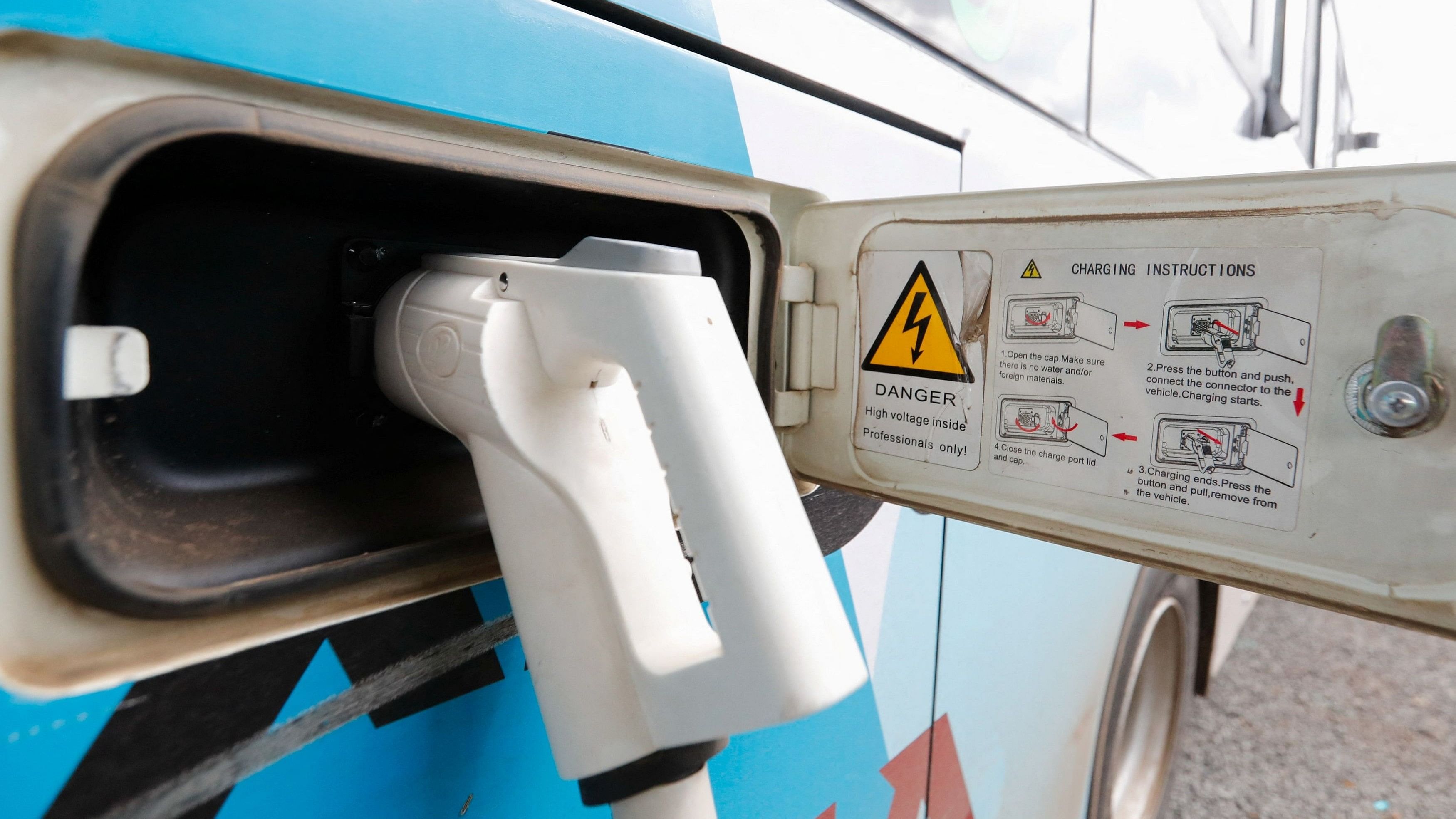
An electric bus is plugged in to charge its EV batteries
Credit: Reuters Photo
The electrification of India’s bus fleet is expected to ramp up significantly in the coming years, with 11-13% of all new bus sales expected to be electric by the financial year ending March 2025, according to a report by credit ratings agency ICRA. Over the previous few years, e-bus volumes and penetration levels have steadily increased to reach 7% by FY23, the report said.
The growing uptake has been aided by a government push to electrify public transport on both central and state levels through incentives and policy changes.
Significant government support has been through the Faster Adoption and Manufacturing of Hybrid and Electric Vehicles (FAME) scheme, which incentivised the manufacture and sale of e-buses along with setting deployment targets that are expected to ramp up in the coming months ahead of the scheme’s culmination in March 2024.
Earlier this year, the central government also rolled out the PM e-bus sewa scheme to deploy 10,000 e-buses in 169 cities. Apart from this, the government has also tried accelerating adoption of e-buses and increased participation from vehicle manufacturers.
Additionally, several state governments also announced targets of their own to electrify their bus fleets in recent years. The Karnataka government has a plan to replace all diesel buses with electric ones by 2030 through multiple partnerships.
Infact, the public-private partnership model is being projected as the preferred route for e-bus procurement as it aids in alleviating the financial burden that cash-strapped state transport departments might be facing.
“Among the various automotive segments, buses would be among the first ones witnessing faster electrification, especially for intra-city operations. While limited charging infrastructure, range anxiety and high capital costs have been the key deterrents in electrification across segments, these are relatively low for the bus segment,” according to Kinjal Shah, Vice President & Co-Group Head – Corporate Ratings, ICRA.
Apart from the environmental benefit, electric buses also hold significant merit in terms of operational costs when compared to traditional diesel buses. The favourable operating economics, along with a reduction in capital costs through more localised and evolved battery technologies, are expected to support penetration and sales in the longer term.